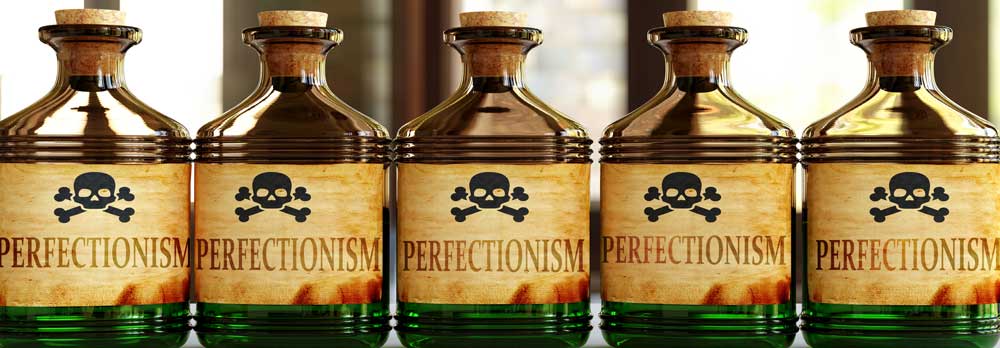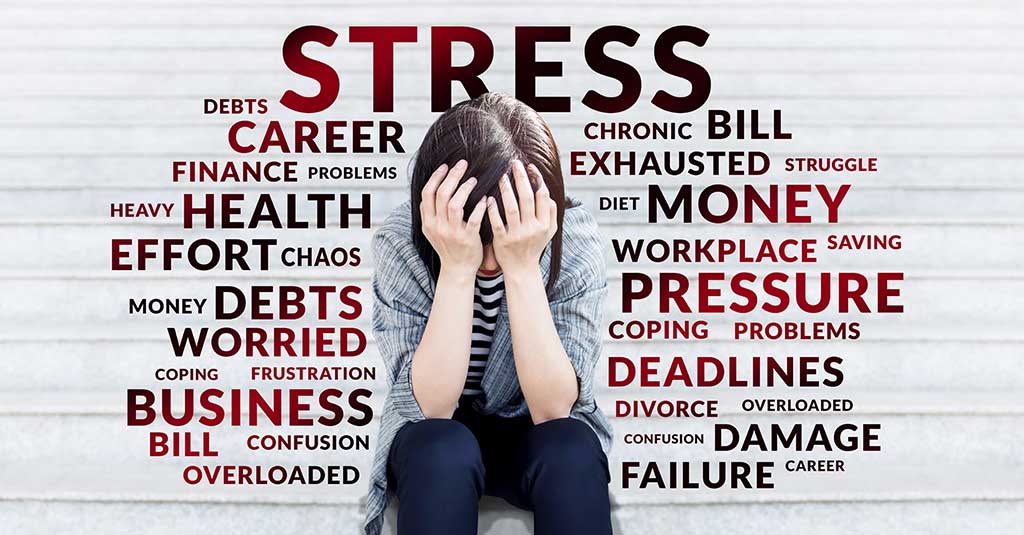How many of us think we need to be perfect, and when something doesn’t go the way we planned it feels like a failure?

I love this definition: “Perfectionism is the price of the never-ending desire; to never getting to the end of anything!”
As a Daring Way Facilitator, I had the privilege to be trained by Dr. Brene` Brown; who has written several best-selling books about perfectionism.
 In her book, The Gifts of Imperfection, Dr. Brown explains how perfectionism emerged from her research. The definition that best fit her data is that “Perfectionism is a self-destructive and addictive belief system that fuels this primary thought: If I look perfect, live perfectly, work perfectly, and everything perfectly, I can avoid or minimize the painful feeling of shame, judgment, and blame.”
In her book, The Gifts of Imperfection, Dr. Brown explains how perfectionism emerged from her research. The definition that best fit her data is that “Perfectionism is a self-destructive and addictive belief system that fuels this primary thought: If I look perfect, live perfectly, work perfectly, and everything perfectly, I can avoid or minimize the painful feeling of shame, judgment, and blame.”
Dr. Brown uses an analogy by stating it is a twenty-ton shield that we lug around thinking it will protect us when IN FACT it’s the ONLY thing that’s really preventing us from taking flight.
Perfectionism is self-destructive simply because there is NO such thing as perfection!
Perfection is an unattainable goal.
Furthermore, perfectionism is more about perception—we want to be perceived as perfect, which isn’t attainable—there is no way to control perception, regardless of how much time and energy we spend trying. Perfectionism is addictive because we invariably do experience shame, judgment, and blame, we often believe it’s because we are not perfect enough.
So rather than questioning the faulty logic of perfectionism, we become more entrenched in our quest to live, look, and do everything just right!
Feeling shamed, judged, and blamed (and the fear of these feelings) are realities of the human experience.
Perfectionism actually increases the odds that we’ll experience these painful emotions and often leads to self-blame: It’s my fault. I’m feeling this way because I’m not good enough.
Papers by Paul Hewitt and colleagues and Simon Sherry and colleagues provide evidence that people with high levels of perfectionistic traits:
- Perfectionists are doomed to fail at meeting their own expectations and the expectations that they assume are held by others.
- Perfectionists perceive themselves as consistently falling short of others’ expectations.
- Perfectionists behave in ways that result in perceived and actual exclusion and rejection by others.
- Perfectionists feel socially disconnected and have fewer social connections.
It is very important to remember that perfectionism is NOT self-improvement.
Perfectionism is, at its core about trying to earn approval and acceptance. Most perfectionists were raised being praised for achievement and performance. Somewhere along the way, we adopt a dangerous and debilitating belief system: “I am what I accomplish and how well I accomplish it”.
Please. Perform. Perfect.
Healthy-striving is self-focused “How can I improve?” Perfectionism is other-focused “What will they think?”
Understanding the difference between healthy striving and perfectionism is critical to laying down that heavy shield and picking up your life!
Research shows that perfectionism hampers success. In fact, it often sets you on a path to depression, anxiety, addiction, and life paralysis.
“Life paralysis” refers to all the opportunities we miss because we are too afraid to put anything out in the world that could be imperfect.
It’s also all the dreams that we don’t follow because of our deep fear of failing, making mistakes, and disappointing others. It’s terrifying to risk when you’re a perfectionist: your self-worth is on the line!
One of Dr. Brown’s memorable lines is, “When perfectionism is driving your car… shame is riding shotgun!”
Shame has two tapes, the first one is “It’s never good enough” and the second is, “Who do you think you are?”
Instead of healthy striving some of us still aim for perfection; we use every ounce of effort to achieve its pursuit! What damage is done by attempting to be above criticism or judgment?
We like to flatter our own character as uncompromising and bound to unrelenting standards. “I am such a perfectionist” fails to sound dysfunctional, right? Psychically, perfectionism for many is “home” and they tend to wonder if they can ever live without it!
Another important perspective I found valuable came from a recent book I read titled: Scratched; A Memoir of Perfectionism, by Elizabeth Tallent

She traces her journey from her early years in which she perceived herself as “the child whose flaws let disaster into an otherwise perfect family” to her adulthood when perfectionism came to affect everything.
She views perfectionism as a form of “being terrified of” and what follows the “of” is a blank every perfectionist would probably fill in differently, but the large, generalizing term may be Loss. In fact, realistically the loss may already have occurred.
A good example is a child’s fear that parental love may be taken away and if this occurs over and over creating a mortal threat. This loss so long ago feared achieves mortal immortality: and a person’s whole life may be lived in relation to it.
Our minds are very powerful and are capable of diminishing actual reality because perfectionism starves joy and healthy striving, instead, it comes up with a defense to justify our attempt to be perfect.
Perfectionism is a terrifying mistake of the mind.

Elizabeth’s book is titled, Scratched because her mother refused to hold her after she was born because she had scratches on her face from her tiny little fingernails.
Her mom tells her the story of her birth and mentions how the nurses tried to put Elizabeth in her arms and she kept turning them away.
Throughout the book Elizabeth describes her mother’s emotions becoming entranced by hostility once she started in on someone or other’s slighting behavior towards her the slight was magnified, she could be consumed by wrongs, her exaggerated woundedness often made it hard to figure out the truth about what she was hearing.
She continued to tell Elizabeth that babies were supposed be like the one on the Gerber’s baby food jar, perfect, smiley, and great big eyes!

I can’t imagine the feelings of hurt and rejection she must have felt.
She thought maybe she intended to tell her the story as a background to put it into context that could inform her understanding of the future troubles she would have. To this day she is still not sure why her mother told her this story.
The year she turned thirteen, was a year of confrontation with her father. She was often in trouble with him and when she least expected to be. He was prone to interpreting things she said or did as covertly malicious. She would listen to him scold her for the remarks she would make but when she tried to defend herself and say, “No, that’s not what I meant!” His usual comeback was “I know what you are thinking.”
The lesson she learned was perfectionism’s blindness to the size of mistakes.
Its’ indifference to any rational hierarchy of offenses means it treats significant and trivial with equal gusto!
Perfectionism hits a perceived error hard, it moves fast, faster than conscious thought, which might be why perfectionism in action feels more real than ordinary thinking.

Perfectionism feels like unerring. Like you shouldn’t distrust it or you’ll die.
There comes a time when a child attempts to comprehend why grown-ups say something or other that is enough to break their heart…
Like everybody’s parents, they are the most real thing there is as a child. It doesn’t occur to us at ten what they say we are might not be true!
The damage is fierce, as Elizabeth writes she was sickened by herself for being the child they wanted not to know about. She could find no way to matter, it had to be her fault, she did things wrong but tried so hard to make things right so eventually, maybe they would love her.
She thought if she could find something to be good at doing, she could please her mother and she would become as serene as mothers were meant to be in 1963. She decided whatever was wanted or needed, it would be done right with no mistakes!
The romance of perfectionism can be alluring, it doesn’t come across as a delusion but as an advantageous form of sanity. The advantage lies in perfectionism’s command of the sufferer’s energies, its power to intensify, focus and motivate. Its exalted goals are treated like pure achievement.
A supposedly surefire means of pleasing a job interviewer is to answer the question, “What is your biggest flaw?” with: “I am a perfectionist.”
Elizabeth eventually finds love and acceptance; her brave book continually searches for the emotional truth beneath the dysfunctional family patterns we all have been taught.
She believes the worst enemy to creativity is self-doubt and opposite one we need to learn is self-trust.

Trust yourself to answer the following questions honestly:
- Fear: We are all scared of being hurt, ridiculed and not accepted so we conform and smother our true self. “What am I doing to people please and why am I afraid about what others think of me?”
- Doubt: When dreaming of success in one form or another, do you talk yourself out of it? What would happen if you attempted to follow your dreams? What would you do if you knew you wouldn’t fail?
- Shame and Guilt: Making mistakes is part of life. When you make a mistake what do you do? Instead of beating yourself up what is something you are willing to do differently?
I hope this blog helps you to have the courage to let go of perfectionism and learn how YOU can move towards healthy-striving by taking the next step to be YOUR BEST SELF!

Maria Bucci, M.Ed LPC DWC-F. Daring Way Facilitator by Dr. Brené Brown



Love this Maria – I adore Brene Brown – groundbreaking badass – you are the same. Take good care. Symphony 🙂